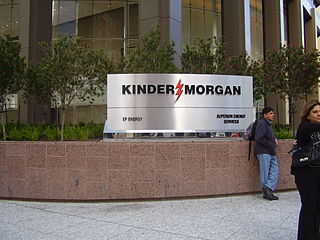A Quote by Richard Kinder
We access virtually every producing basin, whether for natural gas or crude oil, in the U.S. and Canada.
Related Quotes
Even if America tomorrow - and it won't happen overnight - but if we did reduce our demand for gas and natural gas and crude oil by a significant degree, that does have an exponential effect on producers in the Middle East, everything else being equal. But if China's demand is growing and India's demand is growing, they are not going back.
About 75% of the price of gas is really dictated by crude oil. At the heart of the issue is increasing demand over a period of many years around the world. World crude oil consumption now is close to 90 million barrels a day. Most of the growth in demand is coming from China and the developing world.
The momentum of Asia's economic development is already generating massive pressures for the exploration and exploitation of new sources of energy and the Central Asian region and the Caspian Sea basin are known to contain reserves of natural gas and oil that dwarf those of Kuwait, the Gulf of Mexico, or the North Sea.
We know that expanded access to natural gas is important to families and businesses in communities across Ontario. That's why our government is developing new natural gas programs to improve access, which will generate economic activity, attract significant investment, create jobs, and break down barriers in our communities
Americans once believed that their prosperity and way of life depended on having assured access to Persian Gulf oil. Today, that is no longer the case. The United States is once more an oil exporter. Available and accessible reserves of oil and natural gas in North America are far greater than was once believed. Yet the assumption that the Persian Gulf still qualifies as crucial to American national security persists in Washington. Why?

































